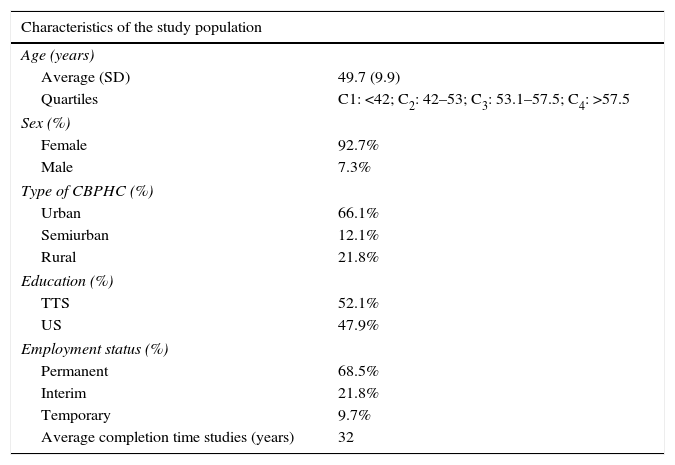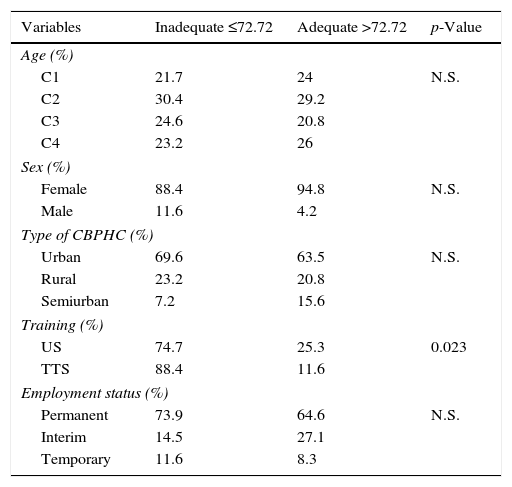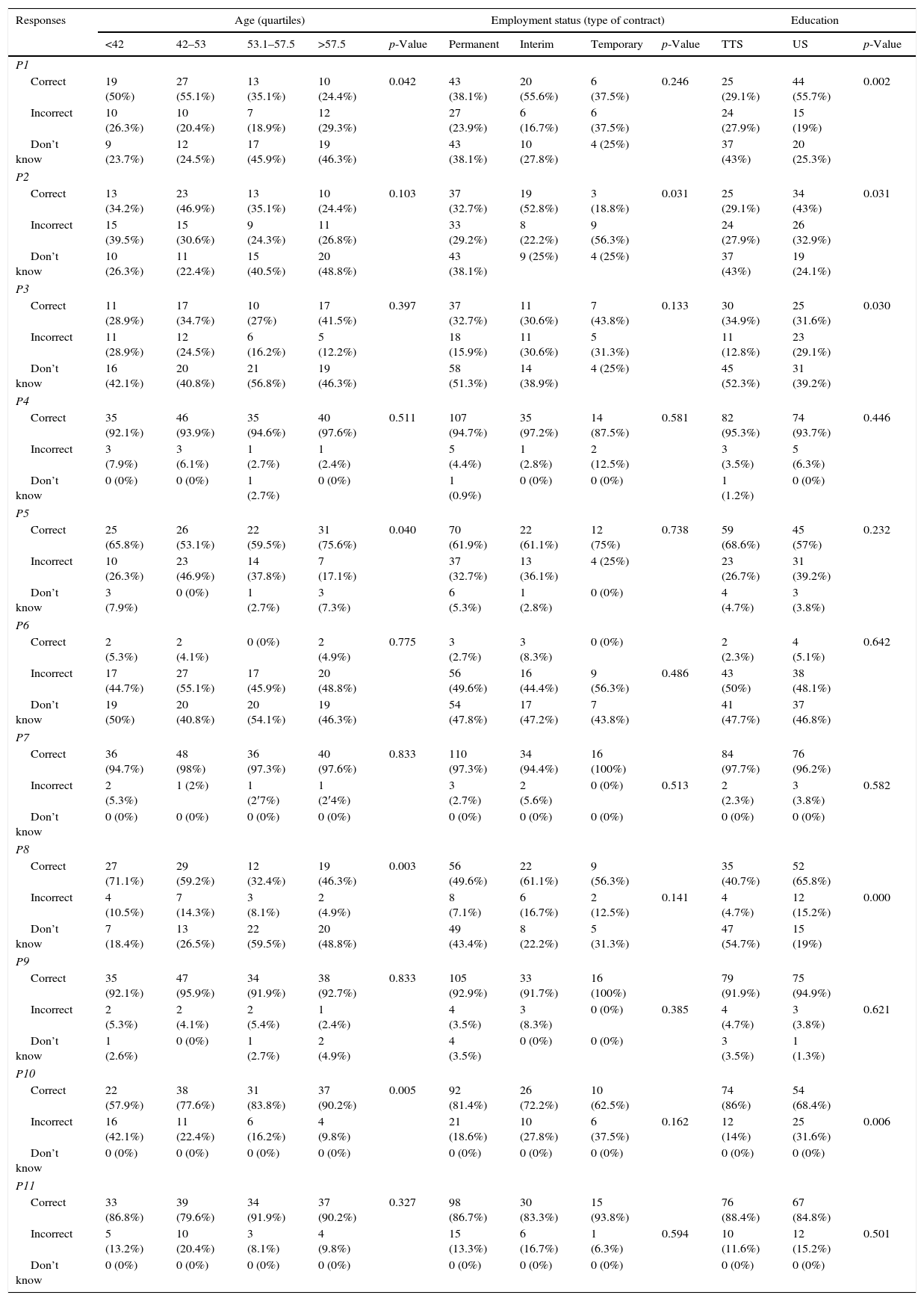The detection of arterial hypertension requires training and knowledge by the responsible health professional. The current guidelines recommend doctors and nurses to work together for the screening of hypertension.
ObjectivesTo assess the level of knowledge among primary healthcare nurses’ in the screening of arterial hypertension.
MethodsDescriptive, observational and transversal study. A random representative sample of 165 nurses working with adult patients in community-based primary healthcare centres were asked to complete an evaluation test of theoretical knowledge about hypertension. Higher scores indicated a greater knowledge about the detection of hypertension.
Results32.1% of the participants obtained a score equal to or more than 72.7 which corresponded to the 75th percentile of correct answers. Nurses with lower scores were older, permanent employees with technical training studies. A higher age and technical training studies contributed independently to a lower score. In the multiple linear regression model, age and type of studies contributed independently to questionnaire's score variance.
ConclusionCurrently, primary care nurses in the studied region do not have sufficient theoretical knowledge to detect hypertension. The results show the need to establish strategies to achieve the necessary knowledge for the implementation of a correct hypertension screening. For professional nurses, continuing education is essential to safe and effective nursing care.
La detección de la hipertensión arterial requiere formación y conocimientos por parte del profesional sanitario responsable. Las directrices actuales aconsejan a los doctores y enfermeros que trabajen juntos para diagnosticar la hipertensión.
ObjetivosEvaluar el nivel de conocimiento entre el personal de enfermería de atención primaria para detectar la hipertensión arterial.
MétodosEstudio descriptivo, observacional y transversal. Se pidió a una muestra aleatoria de 165 enfermeros que trabajaban con adultos en centros de atención primaria que completaran una prueba de evaluación de sus conocimientos teóricos acerca de la hipertensión. Un resultado más alto indicaba un mayor conocimiento a la hora de detectar la hipertensión.
ResultadosEl 32,1% de los participantes obtuvo una puntuación igual o superior a 72,7, que se correspondía con el percentil 75 de respuestas correctas. El personal de enfermería con puntuación más baja fue el de los empleados más mayores, fijos y con estudios técnicos. La edad más avanzada y tener estudios de formación técnica contribuyeron de manera independiente a una menor puntuación. En el modelo de regresión lineal múltiple la edad y el tipo de formación contribuyeron de manera independiente a la variación del resultado.
ConclusiónEn la actualidad el personal de enfermería de atención primaria de la región estudiada no cuenta con suficientes conocimientos para detectar la hipertensión. Los resultados muestran la necesidad de establecer estrategias para alcanzar los conocimientos necesarios y poner en marcha un adecuado plan de diagnóstico de hipertensión. Para los enfermeros profesionales una formación continuada es clave para un cuidado seguro y eficaz.









